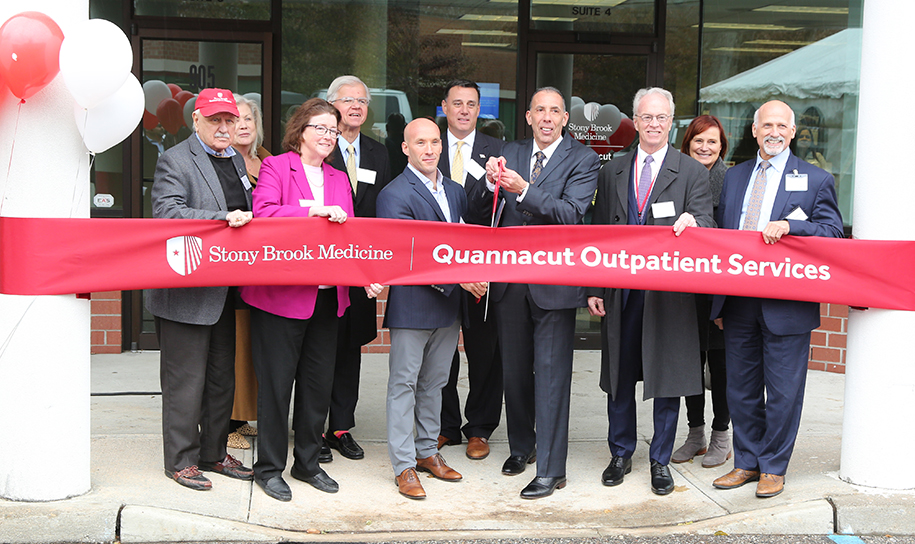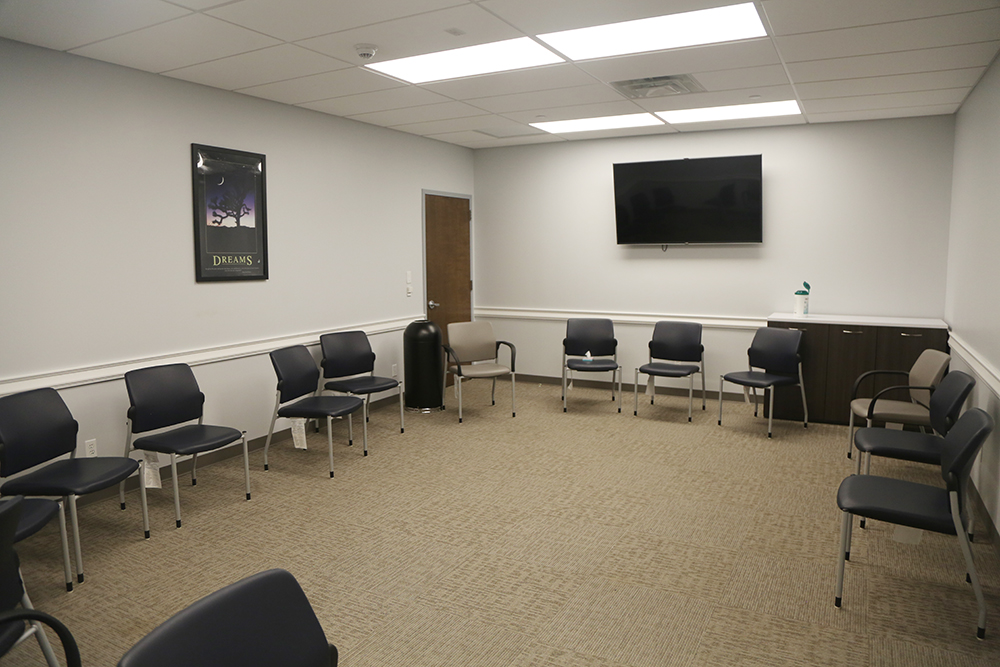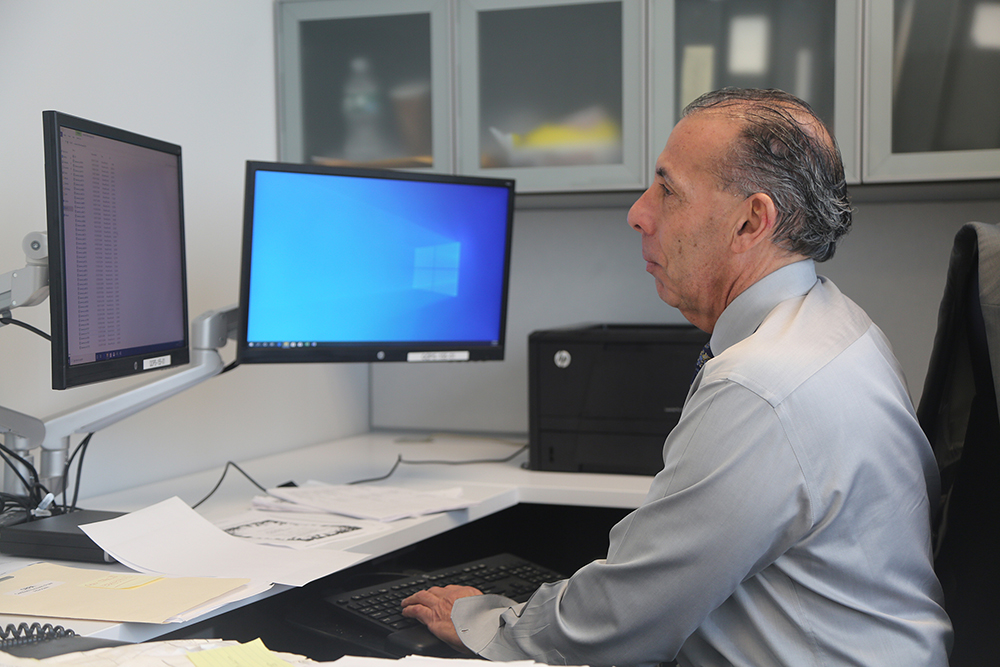Expanded behavioral health facility opens in Riverhead

When David Cohen accepted a position with Quannacut Outpatient Services in the early 2000s, he joined a staff that had recently moved into a new, 5,000-square-foot Riverhead facility on Harrison Avenue.
It was a big step up from the beginning, when the outpatient facility for Quannacut Addiction Services at Greenport’s Eastern Long Island Hospital, now known as Stony Brook Eastern Long Island, was a single room with one staff member. From there, the outpatient facility moved to two locations in Mattituck before settling in Riverhead.
As services expanded and the need for treatment facilities grew amid an escalating opioid crisis, the outpatient facility began to run out of space. Mr. Cohen said that in the past five or six years it became clear space was tight.
Thus, they began a search for a new home.
The result is a new behavioral health facility on East Main Street that’s nearly three times the size of the Harrison Avenue location at 14,000 square feet. The facility, which opened in July, offers programs and treatment that are geared toward addressing substance abuse, mental health and primary care under one roof.
“There is not in Suffolk County another system that has these levels of behavioral health all in one system,” Mr. Cohen said. “Because we have acute detox, rehab, the inpatient psych and an integrated substance abuse outpatient. Some other places have some of that, but not all of that.”
A formal ribbon cutting ceremony with local officials is scheduled Wednesday afternoon to commemorate the facility’s opening.
The facility is already treating up to 300 people, primarily in the Riverhead area and the twin forks, Mr. Cohen said. Some patients come from about as far west as the Mastic area, he said.

Walk-ins are available Monday and Friday from 9 a.m. to noon. Mr. Cohen said offering that type of immediate service is critical for patients who often have narrow windows to address a problem before it can spiral.
The key to improving treatment, he said, comes down to access.
“You need to remove as many barriers as possible,” he said.
Other services offered range from psychiatry to medicine management and primary care medicine. The facility features three exam rooms and four large group rooms where people can sit together for therapy. Offices are set up around the perimeter of the building for staff members, with group rooms positioned in the middle. A large conference room provides space for training sessions, which will be a key component of the facility as it’s used for academics, training and research. Mr. Cohen said Riverhead serves as a central location between Stony Brook University and its affiliated East End hospitals in Greenport and Southampton. So the conference room could be used at times for officials from the three hospitals to hold meetings.
Addiction and behavioral health disorders often go hand-in-hand, a term known as co-occurring disorders. The new facility focuses on a coordinated, integrated approach where patients can receive all the care they need.
“I don’t believe there’s any substance abuse program that has a medical set up like this, certainly on Long Island,” Mr. Cohen said.

Dr. Richard Rosenthal, the director of substance abuse for Stony Brook Medicine, said that for far too long, addiction was viewed as a “runaway train” that cannot be treated.
A culture change has been critical to improving care and Dr. Rosenthal said Stony Brook has been at the forefront in training doctors to be better equipped to treat addiction.
“We can’t rest on our laurels,” he said. “We need to always push the envelope and try to install whatever the state-of-the-art treatment is. We want to be right there to train people to put them into the pipeline so when they become independent practitioners, they’re going out there with the best evidence-based technique available.”
Doctors will spend the final year of a new three-year residency program at the Riverhead facility. The first two years of the residency will be in a hospital.
The residency is an example of the expanded health care offerings following the merger between Stony Brook and ELIH, which officially went into effect this summer.
Dr. Rosenthal said the type of patients at the outpatient facility can range from those who are in denial to those who are eager to begin treatment.
Motivational interviewing is one technique to work with patients who may fail to see the extent of their problems.
“It’s not coercion, it’s not finger-wagging and shaming, it’s really a nice set of techniques that reflect back the patients’ own thinking about his or her own use of illicit substances in a way that gets them to tip their own decisional balance about maybe making some effort to changing their behavior,” Dr. Rosenthal said.
Mr. Cohen said the facility was designed to allow for expansion as well. An additional 2,000 square feet could be built out, he said, which could be used for telemedicine.
Top photo caption: David Cohen is the director of Quannacut Outpatient Services in Riverhead. (Credit: Joe Werkmeister)









